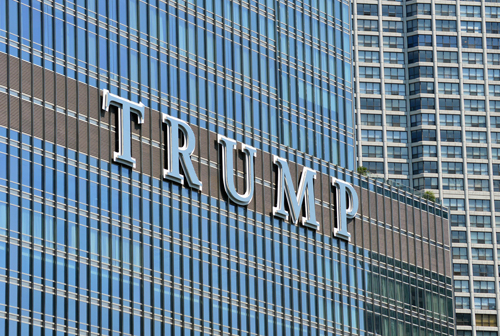Last week, Donald Trump won the 2016 US Presidential Election. Most of the world is still reeling from the shock—not least of all the UK and Europe, who have already been plunged into economic uncertainty by the Brexit referendum.
While Trump’s policies have so far been characteristically low on detail, there have been a number of freight industry responses based on claims he made during his campaign.
Free trade and protectionism
The Wall Street Journal reports fear in the shipping industry over Trump’s antitrade rhetoric; specifically, his criticism of the North American Free Trade Agreement and the Trans-Pacific Partnership, which are designed to lower tariffs between the US and certain other countries.
In an industry suffering from slow growth, the world’s biggest shipping operators are relying heavily on the US, according to the WSJ. Some have also voiced concern that Trump’s administration will start a trend of protectionist policies that will adversely impact trade and worsen current conditions.

Global Trade notes cautious optimism in the air freight industry following 6.1% year-on-year growth in freight volume in September (as reported by IATA), but likewise expresses some trepidation over Trump’s apparent protectionist leanings.
US infrastructure
Jeff Berman at Logistics Management cautiously offers that there may be renewed interest in improving the US’ infrastructure, including highways, bridges and airports—noting that this could be a bipartisan effort. JOC.com likewise enthuses about the prospect of a funding boost and bipartisan support, also quoting FedEx Freight CEO Michael L. Ducker, who says that infrastructure needs to be “one of the top priorities for the next administration”.
However, the New Republic has its doubts, discussing the possible plans for “public-private partnerships” and the likelihood that private operators will only invest in what they can monetise.
Into the unknown
Much of the response so far has been some variation of the statement, “We just don’t know yet.” Analysts at Nomura cite a lack of specificity, Trump’s lack of experience, his yet-to-be-confirmed cabinet, and the question mark over how Congress will respond to his policies, as causes for this uncertainty.
We won’t know until Trump begins his term in January.



On social media? Why not give us a follow...